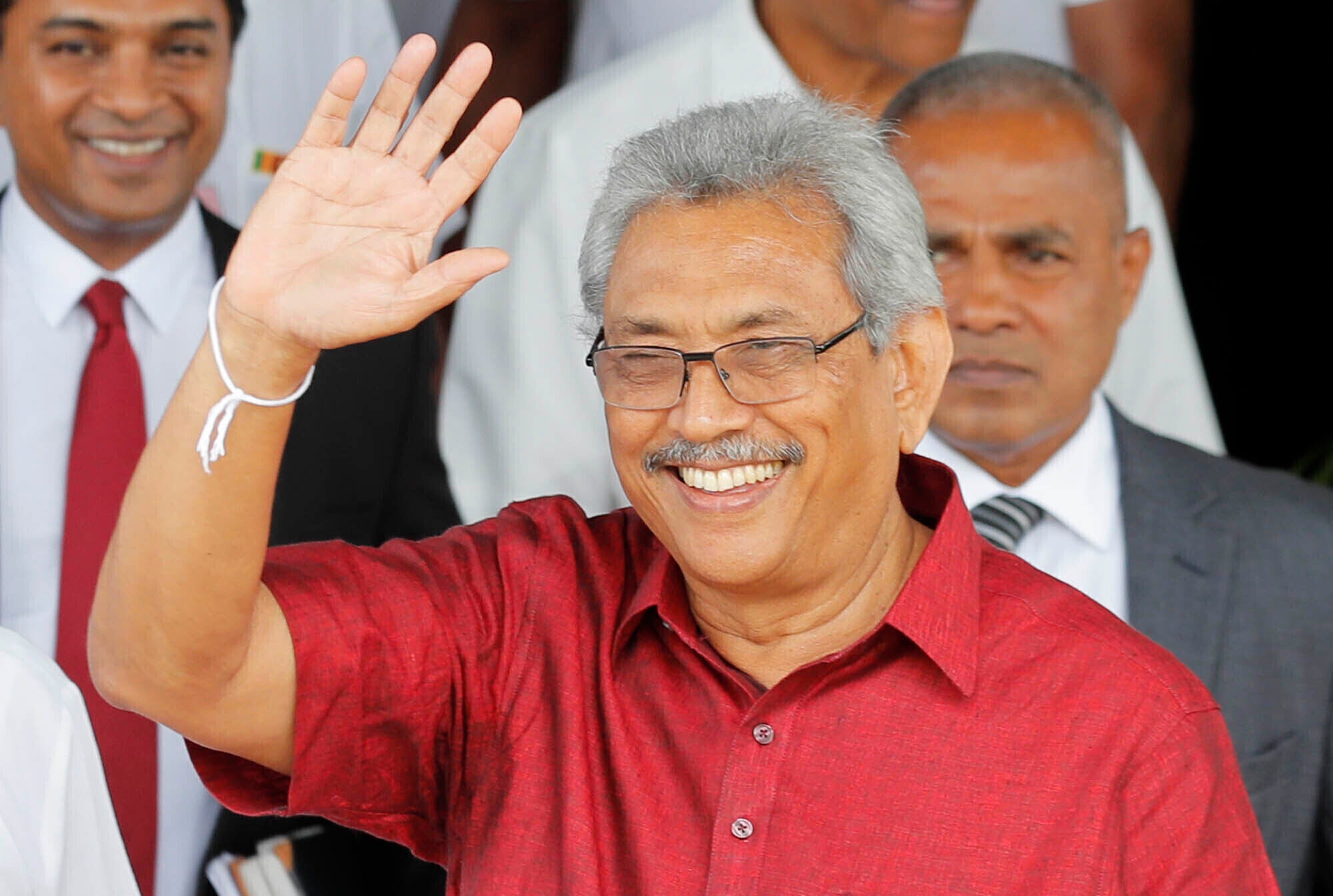Sri Lankan ex-president who fled homeland leaves Singapore
Immigration authorities say former Sri Lankan President Gotabaya Rajapaksa, who last month fled anti-government protests in his country, has left Singapore

Your support helps us to tell the story
From reproductive rights to climate change to Big Tech, The Independent is on the ground when the story is developing. Whether it's investigating the financials of Elon Musk's pro-Trump PAC or producing our latest documentary, 'The A Word', which shines a light on the American women fighting for reproductive rights, we know how important it is to parse out the facts from the messaging.
At such a critical moment in US history, we need reporters on the ground. Your donation allows us to keep sending journalists to speak to both sides of the story.
The Independent is trusted by Americans across the entire political spectrum. And unlike many other quality news outlets, we choose not to lock Americans out of our reporting and analysis with paywalls. We believe quality journalism should be available to everyone, paid for by those who can afford it.
Your support makes all the difference.Former Sri Lankan President Gotabaya Rajapaksa, who last month fled anti-government protests in his country, has left Singapore, immigration authorities there said Thursday.
A one-sentence announcement on the website of the Immigration & Checkpoints Authority did not provide his destination, but officials in Thailand on Wednesday said they had been asked by the Sri Lankan government to allow him entry, and that he would be permitted to stay temporarily.
Thai Prime Minister Prayuth Chan-ocha said he was aware of Rajapaksa’s intended visit and that it was allowed for humanitarian reasons because the former president was seeking asylum in a third country. He did not elaborate.
Rajapaksa has made no public comments about his travel plans. After fleeing Sri Lanka last month, he first went to neighboring Maldives in a Sri Lankan military plane and then to Singapore. He submitted his resignation only after he left Sri Lanka.
Sri Lankans have staged massive street protests for months demanding democratic reforms and solutions to the country’s economic collapse.
Protesters who had occupied official offices and residences in Sri Lanka's capital, Colombo, blame mismanagement and corruption by the Rajapaksa family for the economic crisis that has led to serious shortages of essentials such as medicines, food and fuel. The island nation is negotiating with the International Monetary Fund for a bailout program.
Thai Foreign Ministry spokesperson Tanee Sangrat said Wednesday that Rajapaksa's "stay is temporary in nature with the aim of onward travel. No political asylum has been sought.” He declined to say Thursday whether the former president had arrived in Thailand.
In addition to being criticized for mismanaging his country's economy, Rajapaksa has been accused by human rights groups of involvement with war crimes when he was defense secretary during Sri Lanka's civil war, which ended in 2009.